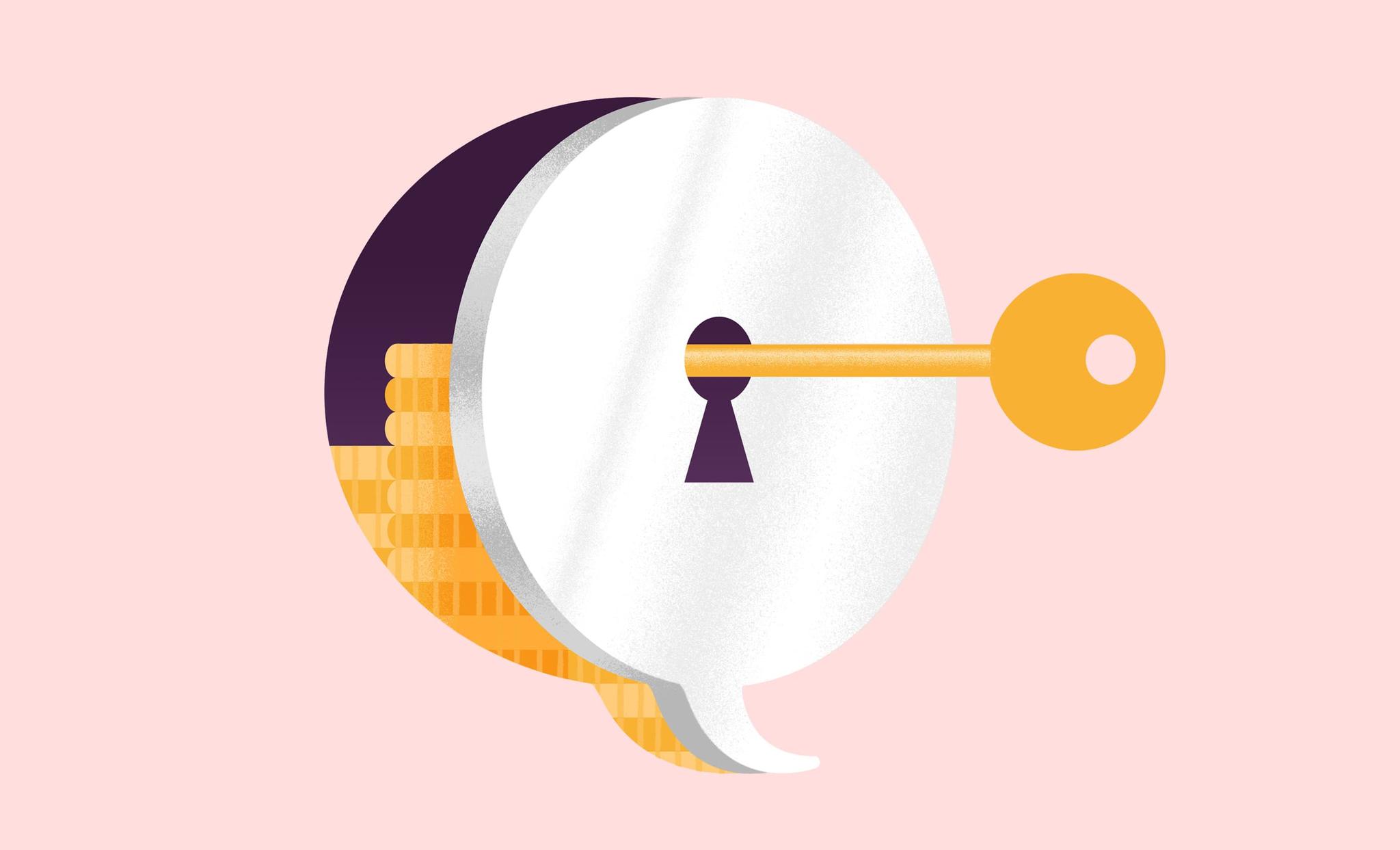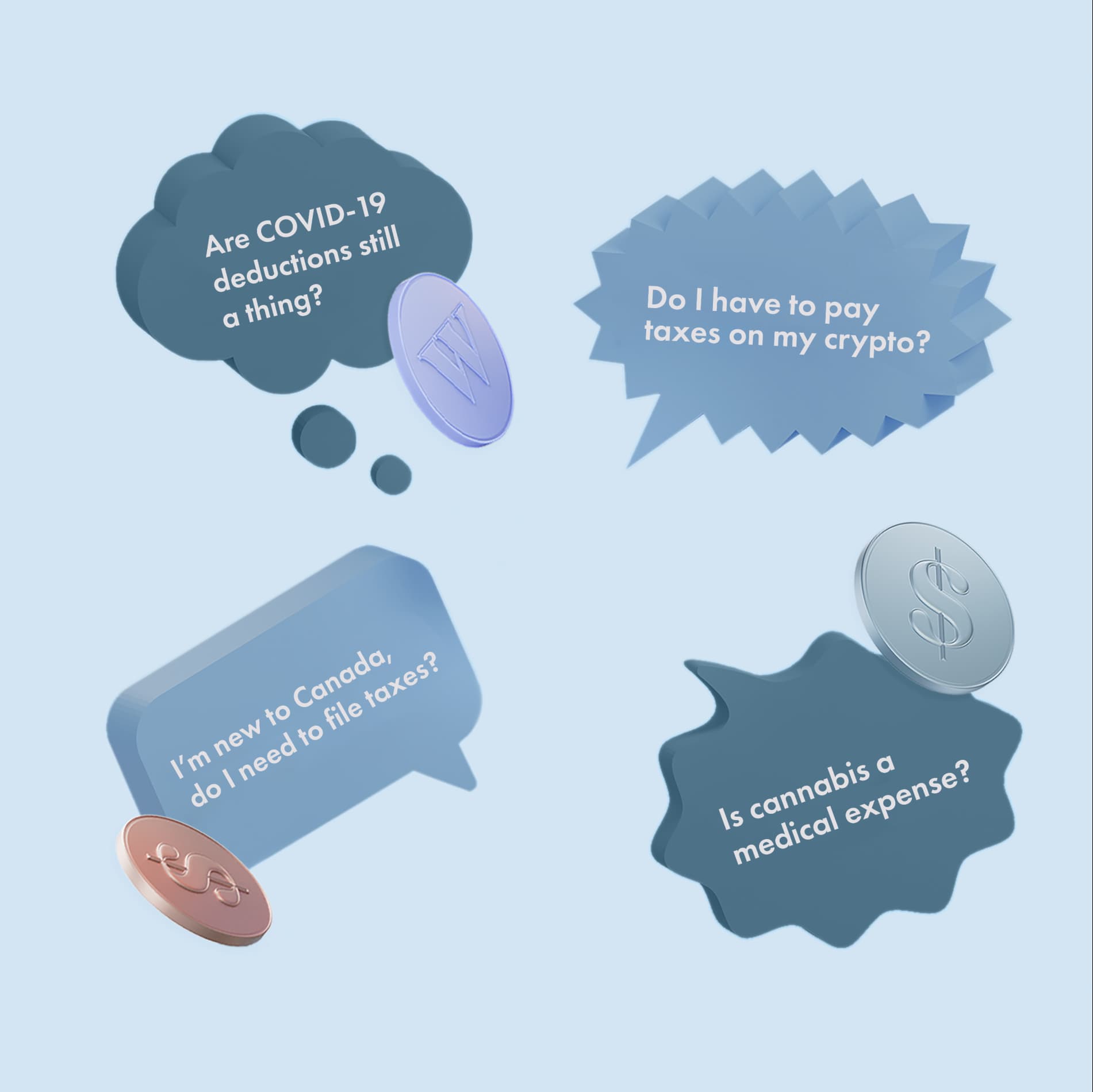
Finance for Humans
I Get Free Tax-Loss Harvesting! Awesome! Wait. What is That?
Tax-loss harvesting is a pretty neat investing trick to save money on your tax bill. But it’s not for everyone. Here’s how it all works.
Wealthsimple makes powerful financial tools to help you grow and manage your money. Learn more
OK. Tax-loss harvesting. I’m ready — I presume I’ll need some overalls and probably some work gloves? Possibly a tractor?
Overalls not required. If you're a Canadian Wealthsimple Black client, you just go to your dashboard and turn it on.
Great. Then I guess the only question I have is: what the hell is tax-loss harvesting?
A legit question. Tax-loss harvesting is a way for some people to pay less taxes if their investments go down in value. To understand how it works let’s start with this: one of the certainties when it comes to markets is that they fluctuate. The upside of that fluctuation is easy to handle: Hey, the value of my investments went up? Great. It’s the downside that can be a little bit more challenging. And tax-loss harvesting lets you make the best out of a downturn.
How does it make losing money a good thing?
The principle is simple. You sell an investment at a lower price than what you bought it for, which means you incur a loss. And when you lose money, that lowers your tax burden for the year. The same way that, when you sell an investment for more money than you bought it for, you have to pay taxes on those gains.

Sign up for our weekly non-boring newsletter about money, markets, and more.
By providing your email, you are consenting to receive communications from Wealthsimple Media Inc. Visit our Privacy Policy for more info, or contact us at privacy@wealthsimple.com or 80 Spadina Ave., Toronto, ON.
Wait, this is a strategy that involves selling an investment that’s dropped in value. I may not be a professional but I do know one thing from watching TV — you’re supposed to buy low and sell high.
I didn’t tell you the other part of it yet. At Wealthsimple, after we sell one investment for a loss, we immediately buy a very similar investment. That way when the market goes up again — and one of the principles of long-term investing is that the market always goes up over time — you’ll still enjoy those gains. But you get the tax benefit of that loss in the meantime.
So tax-loss harvesting is great. Everyone should do it. Right?
A lot of people think that. A lot of financial advisors will tell you that. But it’s not true. Tax-loss harvesting isn't for everyone. It's typically most effective for people in higher tax brackets — and people who think they'll be in the same, or a lower, tax bracket in the future. Another way to say this is that if you're in a low tax bracket today and anticipate you’ll be in a higher one down the road, it doesn’t make sense for you. You'll just be putting off paying taxes until later, when you'll be paying taxes at a higher rate.
I don’t get it.
There is some math involved. But the basic idea is that, if you think you’ll be making more money in the future, it’s better to pay taxes now when your tax bracket is low than to put it off. Let me give you an example. Say you're a professional and you're early in your career and you make $40,000 a year. And, following your career trajectory, you think you'll be making $100,000 in five or ten years. If that's you, tax-loss harvesting isn't something you should take advantage of.
Do I have to sign up for tax-loss harvesting?
We make tax-loss harvesting available for all Canadian Wealthsimple Black clients. You can turn it on and off in the “settings” tab of your dashboard when you sign into your account. But again, not everyone should do it. If you don't know if tax-loss harvesting is right for you, just send us an email or give us a call and we can help you figure it out.
Recommended for you
One more small question. Is all this legal? You sell something but then kind of re-buy it and still apply the loss to my taxes? Sounds a little creepy.
The law is actually very clear about this. There’s something called the “superficial loss rule” in Canada that says that you can’t buy the exact same investment within 30 days of selling it and still take advantage of the loss on your taxes. So what Wealthsimple does is replace the investment with another investment with very similar underlying holdings.
I’m dubious, man. No investment is identical. Think about Facebook. It started out at $38, and then went down to $24, and now it’s at $164. If we did your tax-loss harvesting and dumped it to save a few bucks in taxes, I’d be pretty miffed right now.
You’re right. Facebook would be very difficult to replace with a similar investment because Facebook is unique. But we don’t bet on individual stocks at Wealthsimple. We don’t think it’s the most effective way to build wealth over the long-term. We invest in low-cost funds called ETFs. And ETFs are the perfect type of investment to allow you to take advantage of tax-loss harvesting. Say you have an ETF that tracks large-cap stocks. You can sell that and replace it with another ETF with very similar holdings. The returns will likely be similar.
So once you dump one ETF and buy another, is that the last step in the process?
Remember that 30-day rule? Well, when you hit 31 days and the law has been satisfied, one of two things will happen. If that secondary investment has dropped in value, then we would sell it off and purchase the primary investment again. But if there is a gain in that second investment, you wouldn't want to trigger capital gains taxes by selling it. So we’d hold onto it until it dropped, at which point we’d re-buy the original.
That seems like a risky judgment call. Is there some guy sitting in front of a terminal, all sweaty, deciding when to cut bait on an ETF?
No. At Wealthsimple the whole process is automated. Our algorithm screens all accounts every single day for tax-loss harvesting. And the algorithm looks for a specific decrease before it decides to sell. For many ETFs, it’s seven percent. But it may be a little more or a little less depending on the particular fund.
Will I find out what you're doing, or are you guys going to be weasel-y and not mention it?
We’ll send you an email to let you know about the trade. The trade will also show up on your dashboard, and at the end-of-year your tax form where you can see both capital gains and losses.
The idea of potentially never having to pay capital gains is pretty cool.
It’s not quite that simple. Tax-loss harvesting is a tax deferral strategy. By offsetting those capital gains taxes, it just means there’s less money coming out of your pocket today. So, unless you bequeath your investments to your heirs, or give them away to a charity, or they never increase in value, you'll pay tax at some point down the road when you sell your ETFs.
But saving money today means you can invest money that you would have otherwise paid to the government, and those investments compound. So it's very similar to getting an interest-free loan from the government. That’s something we recommend.
Wealthsimple's education team is made up of writers and financial experts dedicated to making the world of finance easy to understand and not-at-all boring to read.









